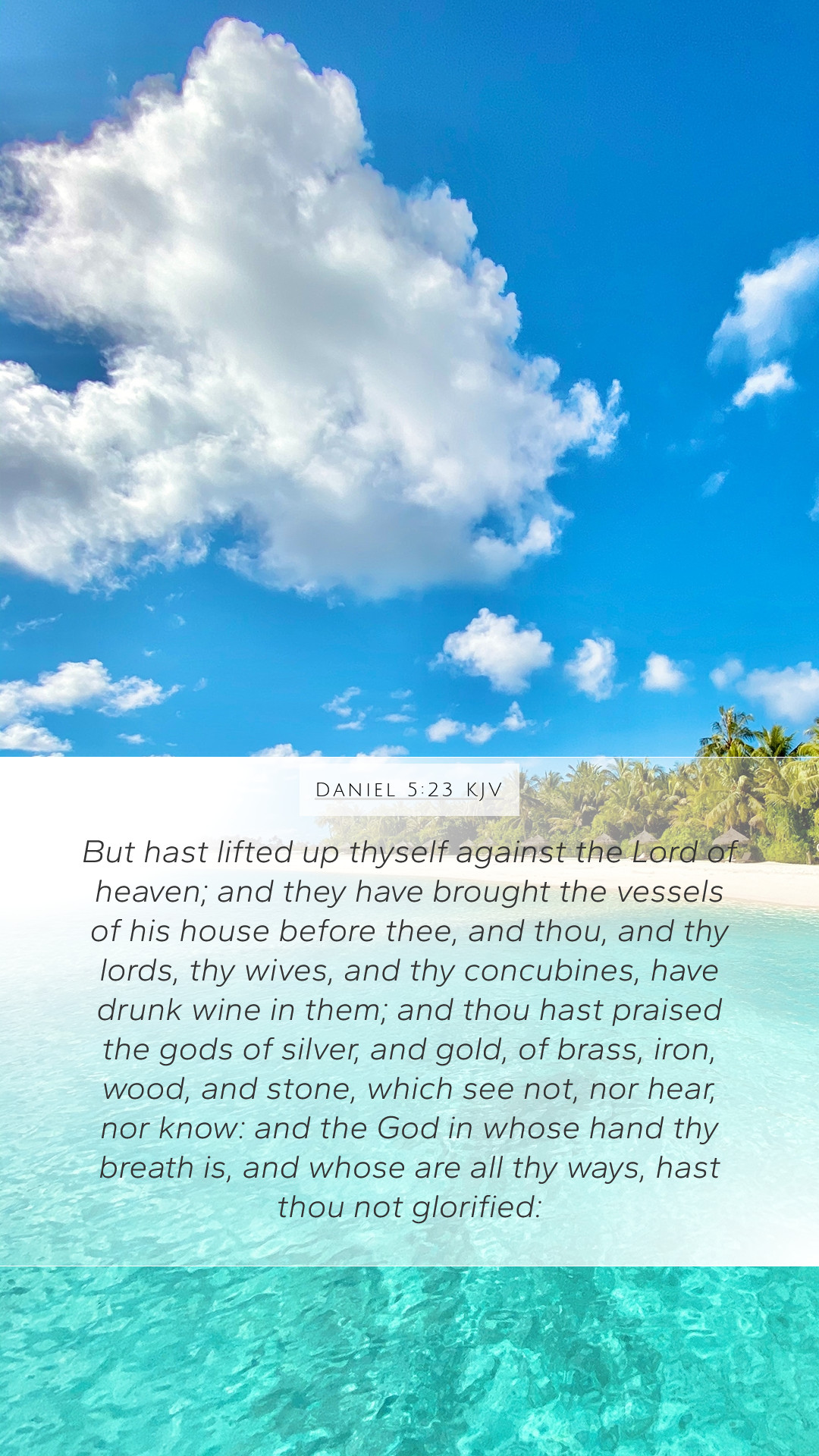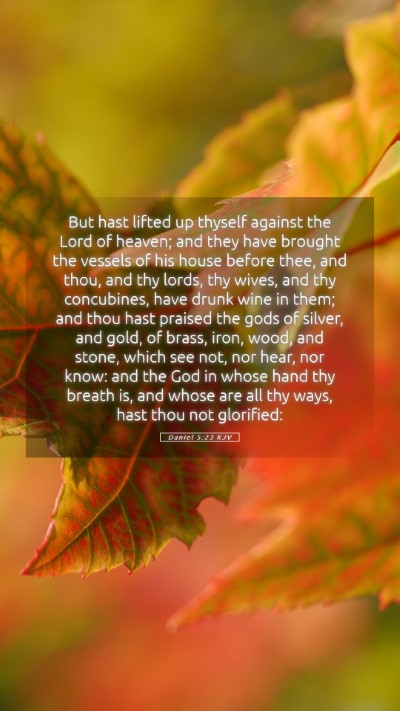Bible Verse Commentary: Daniel 5:23
In Daniel 5:23, we find a significant moment during the reign of King Belshazzar, where the message is delivered concerning his actions and the divine judgment that follows. This verse serves to highlight the stark contrast between earthly authority and divine sovereignty. Let’s delve into the meanings and interpretations provided by esteemed biblical commentators.
Verse Text
"But have lifted up yourself against the Lord of heaven; and they have brought the vessels of his house before you, and you, and your lords, your wives, and your concubines, have drunk wine in them; and you have praised the gods of silver, and gold, of brass, iron, wood, and stone, which see not, nor hear, nor know: and the God in whose hand your breath is, and whose are all your ways, hast thou not glorified." (Daniel 5:23, KJV)
Contextual Analysis
This verse occurs in the context of Belshazzar’s feast, where he arrogantly uses the sacred vessels from the Temple in Jerusalem for a profane celebration. The interpretation of Daniel 5:23 is deeply tied to the themes of pride, idolatry, and divine judgment. Here are the insights from various commentaries:
- Matthew Henry: Henry emphasizes the folly of Belshazzar in elevating himself against God. He notes that the king's arrogance is manifest in both his actions and his disdain for the sacred, leading to inevitable judgment. The revelry represents a stark disregard for holiness.
- Albert Barnes: Barnes elaborates on the futility of idolatry showcased in the verse. He points out that while Belshazzar is exalting the material, the true God, who holds life itself, is ignored. This critique serves to remind believers of the consequences of misplaced worship and pride.
- Adam Clarke: Clarke contextualizes this verse with historical insights and commentary on the nature of idolatry. He elucidates the purpose of the vessels and their intended use for God’s glory, contrasting this with Belshazzar's sacrilegious actions, ultimately showcasing the spiritual implications of such acts.
Key Themes and Insights
The following themes can be extracted from Daniel 5:23:
- The Sovereignty of God: The verse highlights that regardless of human efforts and pride, God's sovereignty remains unchallenged.
- Pride and Its Consequences: Belshazzar’s pride leads to his downfall, underscoring the biblical principle that pride goes before destruction (Proverbs 16:18).
- Idolatry: The contrast between the worship of the living God and the lifeless idols of silver and gold drives home the message about spiritual blindness and moral decay.
Relation to Other Scripture
This verse connects strongly to several other biblical passages that reinforce its themes:
- Proverbs 16:5: "Everyone that is proud in heart is an abomination to the Lord..." echoes the condemnation of pride.
- Isaiah 42:8: Emphasizes the Lord's jealousy for His glory, laying groundwork for understanding His response to idolatry.
- 1 Peter 5:5: "God opposes the proud but gives grace to the humble," further illustrating God’s disdain for prideful hearts.
Application for Today
Understanding Scripture, especially in challenging passages like Daniel 5:23, leads to profound implications for personal and communal worship:
- Self-Reflection: Believers are encouraged to examine their own lives for signs of pride and idolatry, making corrections where necessary.
- Prioritizing Worship: The importance of honoring God with our expressions of worship and ensuring that our actions do not contradict our faith.
- Community Awareness: As a collective, congregations and Bible study groups may reflect on the implications of their communal practices, ensuring they align with glorifying God.
Conclusion
In summary, Daniel 5:23 presents a cautionary tale about the perils of pride and the gravity of idolatry in the sight of a sovereign God. By examining the historical and theological contexts, we gain valuable Bible study insights that inform our understanding of Scripture and guide our worship practices today.


